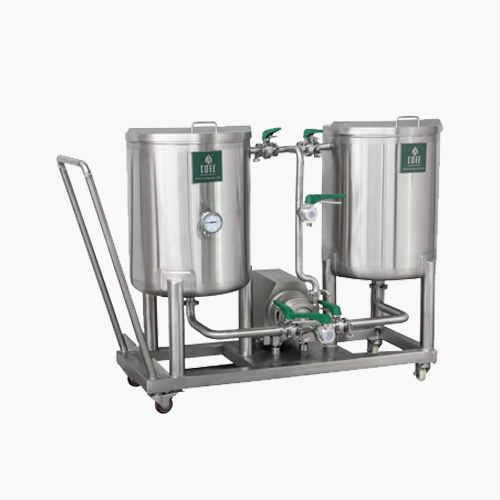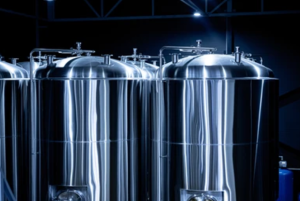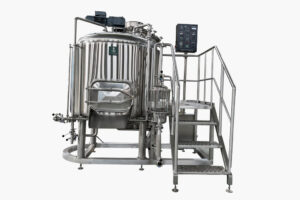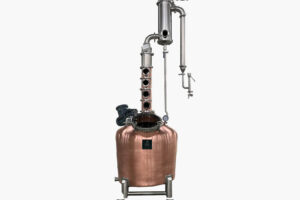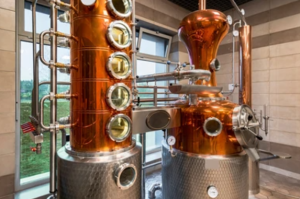COPYRIGHT © 2022 NingBo COFF Machinery Co., ltd. ALL RIGHTS RESERVED
Menu
Categories

Choosing the right stainless steel brewing equipment is essential for crafting consistent, high-quality beer. The equipment you select directly impacts the flavor, aroma, and overall quality of your brews. Durable machines reduce maintenance needs and ensure long-term reliability. Scalable systems allow you to grow your production without replacing key components. Aligning your choices with your budget ensures a smart investment that balances cost and performance. By prioritizing these factors, you set the foundation for efficient brewing and satisfied customers.
Key Takeaways
- Investing in high-quality brewing equipment is crucial for producing consistent, high-quality beer that builds customer trust.
- Prioritize durable materials like stainless steel to ensure longevity and maintain the integrity of your brews.
- Choose scalable and customizable equipment to accommodate future growth and adapt to changing production needs.
- Automated systems enhance efficiency by reducing manual labor and minimizing human error, allowing for precise control over brewing processes.
- Select reliable vendors who offer not only quality equipment but also ongoing support and customization options to meet your specific needs.
- Regular cleaning and maintenance, including the use of CIP systems, are essential to prevent contamination and ensure the longevity of your equipment.
- Consider your brewing goals and production volume when selecting equipment to ensure it aligns with your current and future needs.
Essential Beer Brewery Equipment for Commercial Breweries
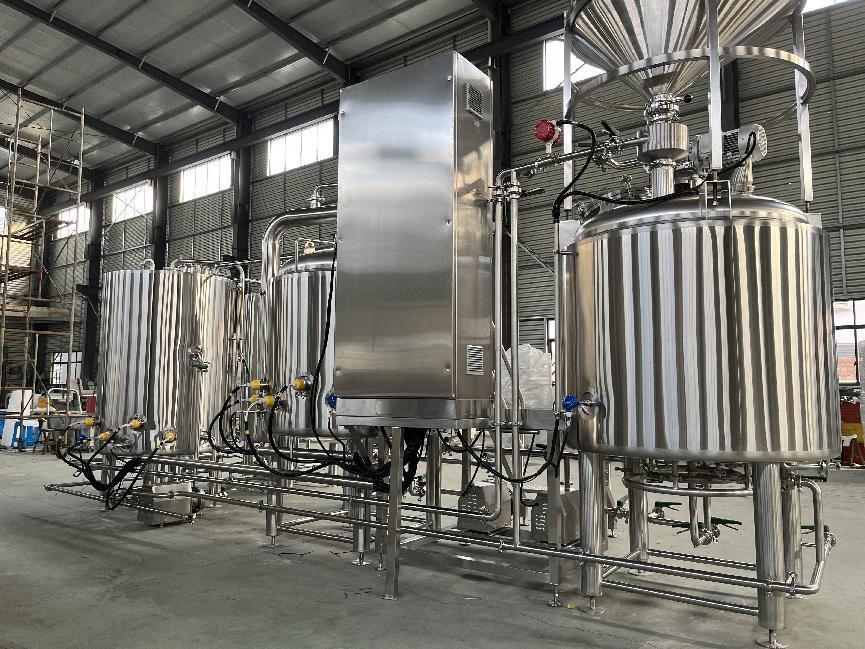
When it comes to brewing exceptional beer, having the right equipment is non-negotiable. Each piece of equipment plays a vital role in ensuring efficiency, consistency, and quality throughout the brewing process. Let’s dive into the essential categories of beer brewery equipment every commercial brewery needs.
Brewing Systems
Your brewing system is the heart of your operation. It includes key components like mash tuns, brew kettles, and fermenters. These systems handle the critical stages of mashing, boiling, and fermentation. For commercial breweries, investing in high-capacity brewing systems ensures you can meet production demands without compromising quality.
Modern brewing systems often come with advanced automation features. These features allow you to monitor and control temperature, pressure, and timing with precision. This level of control helps you maintain consistency across batches, which is crucial for building customer trust in your brand.
Packaging Equipment
Packaging is more than just putting beer into bottles or cans. It’s about preserving the flavor, freshness, and quality of your product. Commercial breweries rely on specialized packaging equipment like bottling lines, canning lines, and labeling machines. These machines streamline the packaging process, saving time and reducing labor costs.
Common packaging formats include bottles, cans, and barrels. Bottling lines are ideal for traditional beer presentations, while canning lines cater to the growing demand for portable and lightweight options. Automated capping and labeling machines ensure a professional finish, enhancing your product’s appeal on store shelves.
“Packaging equipment not only improves production efficiency but also ensures the quality of beer,” as highlighted by industry experts. By choosing the right packaging tools, you can protect your beer’s integrity and make a lasting impression on consumers.
Cleaning and Maintenance Tools
Cleanliness is non-negotiable in brewing. Contaminants can ruin an entire batch of beer, leading to wasted resources and lost revenue. Cleaning and maintenance tools, such as CIP (Clean-in-Place) systems and sanitizing equipment, are essential for maintaining hygiene standards.
Automated cleaning systems simplify the process of cleaning tanks, pipes, and other brewing components. These systems use high-pressure water and cleaning agents to remove residue and bacteria, ensuring your equipment stays in top condition. Tools like faucet wrenches and brushes are also handy for cleaning smaller components like taps and couplers.
Investing in proper cleaning tools not only extends the lifespan of your equipment but also ensures the consistent quality of your brews. A clean brewing environment reflects your commitment to excellence and reassures your customers of your product’s safety.
Brewing Systems: Core Components for Quality Brews
When it comes to brewing exceptional beer, your brewing system is the backbone of the entire process. Each component plays a unique role in transforming raw ingredients into the flavorful beer your customers love. Let’s explore the core elements of brewing systems and how they contribute to crafting quality brews.
Mash Tuns
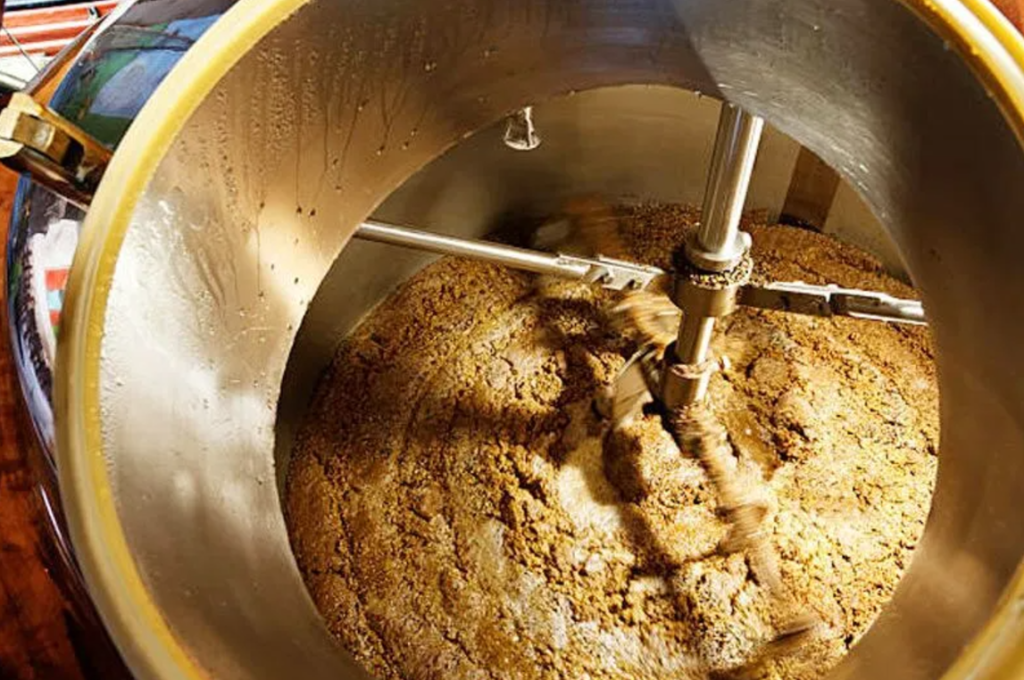
The mash tun is where the magic begins. This vessel combines milled grains with hot water to create a mixture called mash. The controlled temperature inside the mash tun activates enzymes that convert starches into fermentable sugars. This step is crucial because it determines the flavor profile and alcohol content of your beer.
A well-designed mash tun ensures even heat distribution, which helps extract flavors efficiently. It also speeds up wort separation from the grains, resulting in a clearer liquid. If you’re aiming for consistent quality, investing in a mash tun with advanced temperature control features is a smart move. This equipment not only enhances the brewing process but also gives you greater control over the final character of your beer.
“Mash tuns are the foundation of craft beer, influencing both flavor and clarity,” as noted by brewing experts. By prioritizing this step, you set the stage for a successful brew.
Brew Kettles
Once the mash is complete, the next stop is the brew kettle. This vessel is where the wort gets boiled, and it’s a critical step in sterilizing the liquid. Boiling also extracts flavors from hops, which add bitterness, aroma, and preservation qualities to your beer.
The brew kettle plays a vital role in coagulating proteins and removing unwanted compounds. This ensures your beer has a clean taste and a polished appearance. High-quality brew kettles often come with features like precise temperature controls and built-in whirlpool systems. These features help you achieve consistent results, batch after batch.
If you’re serious about brewing, a durable and efficient brew kettle is non-negotiable. It’s not just about boiling; it’s about creating a balanced and flavorful beer that stands out in the market.
Fermenters
The final transformation happens in the fermenter. This is where the wort turns into beer. Fermenters are typically made from stainless steel to ensure purity and maintain the integrity of your brew. They don’t react with ingredients, so the flavors remain unaltered.
Fermenters provide a controlled environment for yeast to work its magic. The yeast consumes the sugars in the wort and produces alcohol and carbon dioxide. The design of the fermenter, including its shape and cooling system, can influence the fermentation process and the final taste of your beer.
Investing in high-quality fermenters ensures consistency and reliability. These vessels are essential for producing beer that meets your quality standards every time. Whether you’re brewing a crisp lager or a robust stout, the fermenter is where your beer’s personality truly develops.
Packaging Equipment for Commercial Breweries
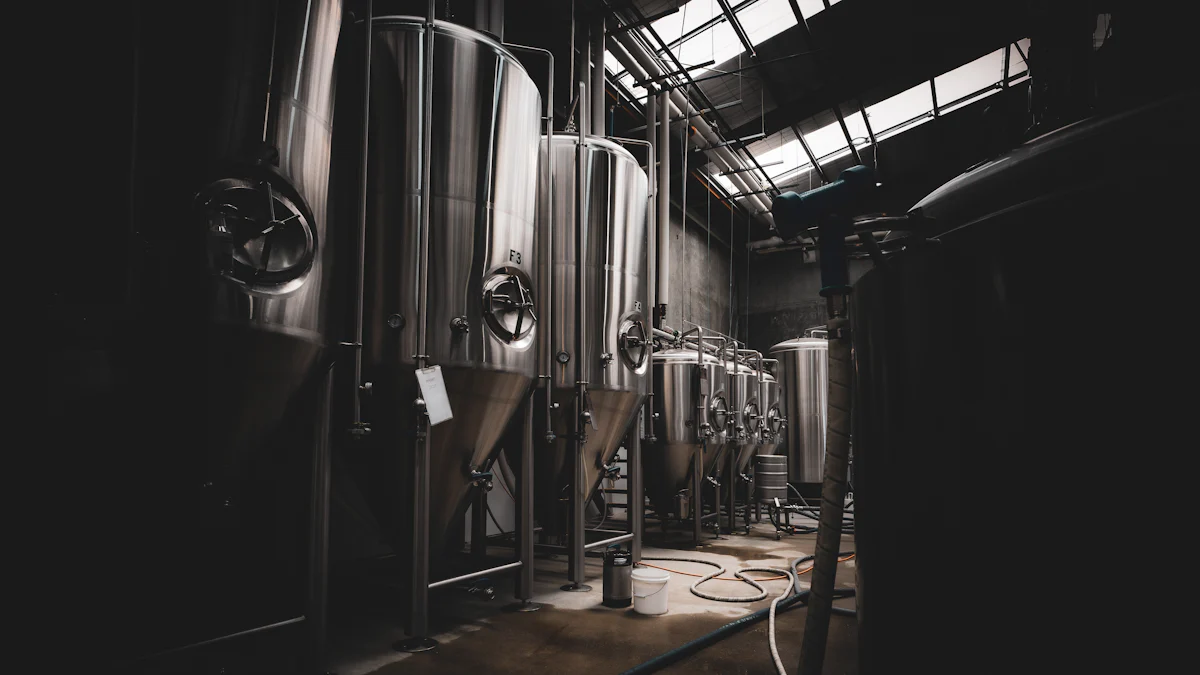
Packaging plays a critical role in delivering your beer to customers while maintaining its quality and freshness. The right packaging equipment ensures efficiency, consistency, and a professional presentation. Let’s explore two essential components of packaging equipment for commercial breweries.
Bottling Lines
Bottling lines are a staple for breweries aiming to offer a traditional beer experience. These systems automate the process of filling, capping, and labeling bottles, making them ideal for high-volume production. With advanced bottling lines, you can streamline your workflow and reduce manual labor, allowing your team to focus on other aspects of brewing.
Modern bottling lines come equipped with features like:
- Automated fillers that ensure precise and consistent beer volume in every bottle.
- Crowners that securely seal bottles, preserving carbonation and freshness.
- Labelers that apply professional-grade labels, enhancing your brand’s visual appeal.
By investing in high-speed bottling systems, you can meet production demands without compromising quality. These systems also help maintain the integrity of your beer by minimizing exposure to oxygen during the bottling process. This ensures your customers enjoy the same great taste you intended.
“Bottling lines not only improve operational efficiency but also elevate the overall presentation of your product,” as noted by industry professionals. A well-packaged beer leaves a lasting impression on consumers.
Canning Lines
Canning lines have gained popularity due to the growing demand for portable and lightweight beer packaging. Cans offer excellent protection against light and oxygen, which helps preserve the beer’s flavor and aroma. They’re also more environmentally friendly, as they are easier to recycle compared to bottles.
Key features of modern canning lines include:
- Automated fillers that ensure each can is filled with precision.
- Seamers that create airtight seals, locking in freshness.
- Palletizers that organize cans for efficient storage and transportation.
Canning lines cater to breweries looking to expand their reach into outdoor events, sports venues, and other on-the-go markets. These systems are designed to handle high production volumes, making them a valuable addition to your beer brewery equipment. With the right canning line, you can produce visually appealing cans that stand out on store shelves and attract new customers.
“Canning lines provide breweries with the flexibility to meet modern consumer preferences while maintaining product quality,” according to packaging experts. By choosing the right canning equipment, you can tap into new markets and grow your brand.
Whether you opt for bottling or canning, investing in high-quality packaging equipment ensures your beer reaches customers in its best form. These tools not only enhance your operational efficiency but also reinforce your commitment to delivering exceptional brews.
Cleaning and Maintenance Tools for Brewing Equipment
Maintaining a clean and hygienic brewing environment is essential for producing high-quality beer. Contaminants can compromise the flavor, aroma, and safety of your brews. To ensure your beer brewery equipment performs at its best, you need reliable cleaning and maintenance tools. Let’s explore two critical components that help you maintain a spotless brewing operation.
CIP (Clean-in-Place) Systems
Cleaning your brewing equipment manually can be time-consuming and inconsistent. That’s where CIP (Clean-in-Place) systems come in. These automated systems simplify the cleaning process by thoroughly sanitizing tanks, pipes, and other components without requiring disassembly. They use high-pressure water, cleaning agents, and precise controls to remove residue, bacteria, and other contaminants.
With a CIP system, you can:
- Save time by automating the cleaning process.
- Ensure consistent sanitation across all equipment.
- Reduce the risk of contamination in your brewing process.
CIP systems are especially valuable for commercial breweries handling large production volumes. They maintain the integrity of your beer by preventing off-flavors caused by leftover residues. Additionally, these systems extend the lifespan of your brewing equipment by keeping it in optimal condition. Regular use of a CIP system ensures your brewery operates efficiently and produces consistent, high-quality beer.
“Proper cleaning and sanitation prevent contamination and ensure the consistency of the final product,” as noted by industry experts. Investing in a CIP system is a smart move for any brewery aiming to deliver exceptional brews.
Sanitizing Equipment
While cleaning removes visible dirt and residue, sanitizing eliminates harmful microorganisms that could spoil your beer. Sanitizing equipment includes pumps, hoses, and food-grade sanitizers designed to disinfect brewing tools and surfaces. These tools are essential for maintaining a safe brewing environment.
Here’s how sanitizing equipment benefits your brewery:
- Protects your beer from contamination by killing bacteria and yeast.
- Ensures compliance with hygiene standards in commercial brewing.
- Preserves the flavor and quality of your beer.
Using sanitizing equipment is straightforward. After cleaning your brewing tools, apply a food-grade sanitizer to all surfaces that come into contact with your beer. This extra step guarantees your equipment is free from harmful microbes. Regular sanitization not only safeguards your beer but also reinforces your commitment to quality and safety.
To maximize the effectiveness of your sanitizing routine, inspect your equipment regularly for wear or damage. Replace worn-out hoses or pumps to maintain a seamless cleaning process. By prioritizing sanitation, you create a brewing environment that consistently delivers outstanding results.
“Proper maintenance and care of craft brewery equipment are vital to ensure optimal performance and longevity,” as highlighted by brewing professionals. A clean and sanitized brewery reflects your dedication to excellence.
Investing in high-quality cleaning and maintenance tools is non-negotiable for any brewery. Whether you’re using CIP systems to automate cleaning or sanitizing equipment to eliminate microbes, these tools play a crucial role in preserving the quality of your beer. A clean brewing environment not only enhances your product but also builds trust with your customers. Take the time to maintain your beer brewery equipment, and you’ll see the rewards in every sip.
Popular Beer Brewery Equipment Options by Brewery Size
Choosing the right beer brewery equipment depends on the size of your brewery and your production goals. Whether you’re running a large-scale operation, a medium-sized brewery, or a small craft setup, there are equipment options tailored to meet your needs. Let’s explore the best choices for each brewery size.
High-End Equipment for Large Breweries
Large breweries require equipment that can handle high production volumes while maintaining consistency and efficiency. High-end systems offer advanced features designed to streamline operations and reduce labor demands. These systems often include automated brewing systems, high-capacity fermenters, and state-of-the-art packaging lines.
Key benefits of high-end equipment include:
- Increased efficiency: Automated systems speed up brewing and packaging processes, saving time and resources.
- Scalability: These systems can handle significant production growth without requiring major upgrades.
- Consistency: Advanced controls ensure every batch meets the same high-quality standards.
For example, automated brewing systems allow you to monitor and adjust temperature, pressure, and timing with precision. This level of control ensures repeatability across batches, which is crucial for maintaining your brand’s reputation. Additionally, high-capacity fermenters and packaging lines reduce downtime, enabling you to meet market demands efficiently.
“Investing in high-end equipment may seem costly upfront, but it pays off in the long run by lowering operating costs and improving beer quality,” as noted by industry experts.
If you’re managing a large brewery, prioritizing high-quality equipment ensures your operation runs smoothly and delivers exceptional brews consistently.
Mid-Range Equipment for Medium-Sized Breweries
Medium-sized breweries often need a balance between performance and cost. Mid-range equipment provides reliable functionality without the hefty price tag of high-end systems. These setups typically include semi-automated brewing systems, moderate-capacity fermenters, and versatile packaging lines.
Advantages of mid-range equipment include:
- Cost-effectiveness: These systems offer excellent performance at a more affordable price.
- Flexibility: They can handle a variety of beer styles and production volumes.
- Room for growth: Many mid-range systems are scalable, allowing you to expand your production as your business grows.
Semi-automated brewing systems give you control over key processes while reducing manual labor. Moderate-capacity fermenters are ideal for producing consistent batches without overwhelming your resources. Packaging lines in this range often include both bottling and canning options, giving you the flexibility to cater to different markets.
“Mid-range equipment strikes the perfect balance for breweries looking to grow without overspending,” according to brewing professionals.
If you’re running a medium-sized brewery, investing in mid-range equipment helps you maintain quality while staying within budget.
Budget-Friendly Options for Small Breweries
Small breweries and startups often operate with limited budgets, making cost-effective equipment essential. Budget-friendly options focus on delivering functionality and reliability without unnecessary features. These setups usually include manual or semi-automated brewing systems, small-capacity fermenters, and basic packaging tools.
Benefits of budget-friendly equipment include:
- Affordability: These systems allow you to start brewing without a significant financial burden.
- Ease of use: Simple designs make them easy to operate and maintain.
- Scalability: Many budget-friendly options can be upgraded as your brewery grows.
Manual brewing systems give you hands-on control over the process, which is perfect for crafting unique and experimental beers. Small-capacity fermenters are ideal for limited production runs, allowing you to focus on quality over quantity. Basic packaging tools, such as hand-cappers and manual labelers, keep costs low while ensuring your beer looks professional.
“Starting small doesn’t mean compromising on quality. Budget-friendly equipment lets you focus on perfecting your craft,” as highlighted by industry experts.
If you’re launching a small brewery, choosing affordable yet reliable equipment helps you establish your brand without stretching your finances.
No matter the size of your brewery, selecting the right beer brewery equipment sets the foundation for success. High-end systems suit large-scale operations, mid-range options cater to growing breweries, and budget-friendly setups support startups. By aligning your equipment choices with your production goals, you can create a brewing operation that thrives.
Key Features to Look for in Beer Brewery Equipment
When selecting beer brewery equipment, focusing on key features ensures you make a smart investment. These features not only enhance the brewing process but also help you maintain consistency and efficiency. Let’s explore the essential qualities to prioritize.
Durability and Material Quality
Durability is a cornerstone of reliable brewing equipment. You want machines that can withstand the demands of daily use without frequent breakdowns. High-quality materials, like stainless steel, are essential. Stainless steel resists corrosion, maintains hygiene, and ensures your beer’s flavor remains untainted. It’s also easy to clean, which is crucial for maintaining a sanitary brewing environment.
Look for equipment with reinforced welds and sturdy construction. These details ensure your machinery lasts longer and performs consistently. Investing in durable equipment reduces maintenance costs and downtime, allowing you to focus on crafting exceptional beer.
“Durable materials like stainless steel not only extend the lifespan of your equipment but also preserve the integrity of your brews,” as noted by industry experts.
By prioritizing material quality, you safeguard your brewing process and deliver a product your customers can trust.
Automation and Technology Integration
Modern brewing equipment offers advanced automation features that simplify complex processes. Automation allows you to control temperature, pressure, and timing with precision. Digital temperature controls ensure consistent results, while automated cleaning systems save time and effort. These features reduce human error and improve efficiency.
Technology integration also opens the door to experimentation. Sophisticated fermentation monitors let you test new recipes while maintaining safety and quality standards. With these tools, you can innovate without compromising consistency.
For example, many breweries now use automated systems to monitor fermentation in real time. These systems provide data on yeast activity, temperature fluctuations, and sugar levels. This level of control helps you fine-tune your beer’s flavor and aroma.
“Modern brewing equipment integrates technology to enhance precision and consistency,” as highlighted by brewing professionals. By embracing automation, you streamline operations and elevate your craft.
Scalability and Customization
As your brewery grows, your equipment should grow with you. Scalability ensures your machinery can handle increased production volumes without sacrificing quality. Look for systems designed to expand easily, such as modular brewing setups. These systems allow you to add components as needed, saving you from costly replacements.
Customization is equally important. Every brewery has unique needs, from specific beer styles to production goals. Equipment that offers adjustable settings or interchangeable parts gives you the flexibility to adapt. For instance, some brewing systems let you modify mash tun capacities or add extra fermenters. This adaptability ensures your equipment aligns with your vision.
“Scalable and customizable equipment supports growth and innovation,” according to industry insights. By choosing flexible systems, you future-proof your brewery and stay ahead of market demands.
By focusing on durability, automation, and scalability, you set your brewery up for success. These features not only enhance your brewing process but also ensure your beer stands out in a competitive market. Take the time to evaluate your options and invest in equipment that meets your needs today and tomorrow.
Tips for Choosing the Right Beer Brewery Equipment
Selecting the right beer brewery equipment can feel overwhelming, but breaking it down into clear steps makes the process manageable. By focusing on your brewing goals, budget, and vendor support, you can make informed decisions that set your brewery up for success.
Assessing Brewing Goals and Production Volume
Start by defining your brewing goals. What types of beer do you want to produce? Are you aiming for small-batch craft brews or large-scale commercial production? Your answers will guide your equipment choices. For example, if you plan to experiment with unique beer styles, you’ll need versatile equipment that supports flexibility. On the other hand, if consistency across high volumes is your priority, automation and precision become essential.
Production volume is another critical factor. Equipment designed for small breweries may not meet the demands of a growing operation. Consider your current capacity and where you see your brewery in five years. Investing in scalable systems ensures you won’t outgrow your equipment too quickly. As industry experts often say, “Your equipment should grow with your brewery.”
Budget Considerations and ROI
Your budget plays a significant role in determining the equipment you can afford. However, it’s not just about the upfront cost. Think about the long-term return on investment (ROI). High-quality equipment may cost more initially, but it often lasts longer and requires less maintenance. This saves you money over time and ensures consistent beer quality.
When evaluating ROI, consider how the equipment impacts efficiency. Automated systems, for instance, reduce labor costs and minimize errors. Packaging lines with advanced features can speed up production, allowing you to meet market demands faster. These efficiencies translate into higher profits, making the investment worthwhile.
It’s also wise to allocate part of your budget for future upgrades. As your brewery grows, you may need additional fermenters, larger mash tuns, or more advanced packaging tools. Planning for these expenses now prevents financial strain later.
Vendor Reputation and Support
The vendor you choose is just as important as the equipment itself. A reputable vendor provides not only high-quality products but also reliable support. Look for companies with a proven track record in the brewing industry. Customer reviews, testimonials, and case studies can give you insight into their performance.
Support services are crucial, especially for complex systems. Does the vendor offer installation assistance? Do they provide training for your team? What about ongoing maintenance and troubleshooting? These services ensure your equipment operates smoothly and minimizes downtime.
Building a relationship with a trusted vendor also opens the door to customization. Many breweries have unique needs based on their space, production goals, and beer styles. A good vendor works with you to tailor equipment to your specific requirements. This level of collaboration ensures you get the most value from your investment.
“Choosing the right vendor is like choosing a partner for your brewery,” say seasoned brewers. “Their expertise and support can make or break your operation.”
By assessing your brewing goals, planning your budget wisely, and partnering with a reliable vendor, you can confidently select beer brewery equipment that meets your needs. These steps not only simplify the decision-making process but also set the foundation for a successful and sustainable brewing operation.
Benefits of Investing in High-Quality Beer Brewery Equipment
Consistency in Beer Production
High-quality beer brewery equipment ensures every batch of beer meets the same high standards. Consistency is key when building trust with your customers. Reliable equipment allows you to control critical factors like temperature, pressure, and timing with precision. This control eliminates variations that could affect the flavor, aroma, or texture of your beer.
For example, stainless steel fermenters maintain a stable environment for yeast activity, ensuring uniform fermentation. Advanced brewing systems with automated features also help you replicate recipes accurately. By investing in dependable machinery, you can deliver the same great taste every time, strengthening your brand’s reputation.
“Consistency in production is the foundation of customer loyalty,” as noted by brewing experts. When your beer tastes the same with every sip, customers keep coming back.
Improved Efficiency and Productivity
Efficient equipment boosts your brewery’s productivity. Modern brewing systems streamline processes, reducing the time and effort required for each stage of production. Automated features, such as digital temperature controls and CIP (Clean-in-Place) systems, save hours of manual labor. This efficiency allows you to focus on other aspects of your business, like marketing or experimenting with new recipes.
High-quality machinery also minimizes downtime. Durable materials, like stainless steel, reduce the risk of breakdowns and maintenance issues. This reliability keeps your production running smoothly, helping you meet deadlines and market demands. Additionally, energy-efficient equipment lowers utility costs, improving your bottom line while supporting sustainable practices.
“Efficient machinery ensures higher output,” as highlighted by industry professionals. By optimizing your operations, you can produce more beer without compromising quality.
Enhanced Brand Reputation
Your equipment reflects your commitment to quality. High-end beer brewery equipment not only improves your beer but also enhances your brand image. Customers associate premium products with professional craftsmanship. When your beer consistently delivers on taste and quality, it elevates your reputation in the market.
Energy-efficient and sustainable equipment can further boost your brand’s appeal. Consumers today value eco-friendly practices. By reducing your environmental footprint, you show responsibility and attract environmentally conscious customers. This approach not only strengthens your brand but also sets you apart from competitors.
“Opting for energy-efficient equipment can significantly reduce utility costs and enhance your brand’s reputation,” according to sustainability experts. A strong reputation builds trust and opens doors to new opportunities.
Investing in high-quality beer brewery equipment offers long-term benefits. It ensures consistency, improves efficiency, and enhances your brand’s image. These advantages not only help you produce exceptional beer but also position your brewery for lasting success.
Common Mistakes to Avoid When Buying Beer Brewery Equipment
Overlooking Future Growth
Planning for the future is essential when choosing brewery equipment. Many new brewers focus solely on their current needs, forgetting that growth often comes faster than expected. If your equipment can’t scale with your production demands, you’ll face costly upgrades or replacements sooner than you’d like. For example, starting with a brewing system that handles only small batches might limit your ability to meet increasing customer demand.
Think about where you want your brewery to be in five years. Do you plan to expand your product line or increase production volume? Scalable equipment, such as modular brewing systems, allows you to add components as your business grows. This flexibility saves you money and ensures your brewery can adapt to market changes.
“Starting with new equipment ensures you know the history of wear and tear,” as industry experts often advise. Investing in scalable, high-quality equipment from the start sets you up for long-term success.
Choosing Price Over Quality
It’s tempting to cut costs by opting for cheaper equipment, especially when you’re working with a tight budget. However, low-cost options often come with hidden expenses. Poor-quality materials can lead to frequent breakdowns, higher maintenance costs, and inconsistent beer quality. These issues not only hurt your bottom line but also damage your reputation.
High-quality equipment may require a larger upfront investment, but it pays off in the long run. Durable materials like stainless steel resist corrosion and maintain hygiene, ensuring your beer’s flavor remains untainted. Reliable machinery also reduces downtime, keeping your production schedule on track.
“Craft brewery equipment can be a significant investment, and setting a budget is essential,” as noted by seasoned brewers. Balance your budget with quality to ensure you’re making a smart, long-term investment.
When evaluating equipment, consider its total cost of ownership. This includes maintenance, energy efficiency, and lifespan. Spending a bit more now can save you from costly repairs and replacements later.
Ignoring Vendor Support
The relationship with your equipment vendor doesn’t end after the purchase. Reliable support from your vendor is crucial for smooth operations. Some brewers overlook this aspect, focusing only on the equipment itself. However, even the best machinery can encounter issues, and having a dependable vendor can make all the difference.
Look for vendors with a strong reputation in the brewing industry. Check reviews, testimonials, and case studies to gauge their reliability. Ask about their support services. Do they offer installation assistance? Will they train your team on how to use the equipment? What about ongoing maintenance and troubleshooting?
A good vendor acts as a partner, helping you customize equipment to fit your specific needs. They also provide valuable insights into optimizing your brewing process. Ignoring this aspect can leave you struggling to resolve issues on your own, leading to unnecessary downtime and frustration.
“Choosing the right vendor is like choosing a partner for your brewery,” as experienced brewers often say. A supportive vendor ensures your equipment operates efficiently and helps you navigate challenges.
Avoiding these common mistakes can save you time, money, and headaches. Plan for future growth, prioritize quality over price, and choose a vendor you can trust. By taking these steps, you’ll set your brewery up for long-term success and deliver exceptional beer that keeps customers coming back.
FAQ
When it comes to beer brewery equipment, you might have a lot of questions. To help you out, here are answers to some of the most common ones. Whether you’re just starting or looking to upgrade, these insights will guide you in making informed decisions.
1. What is the most important piece of equipment for brewing beer?
Every piece of equipment plays a role, but the brewing system stands out as the heart of your operation. It includes mash tuns, brew kettles, and fermenters. These components handle critical steps like mashing, boiling, and fermentation. Without a reliable brewing system, maintaining consistency and quality becomes challenging. Investing in a high-quality system ensures you can produce exceptional beer every time.
“The brewing system is where the magic happens,” says expert brewers. It’s the backbone of your entire process.
2. How do I choose the right equipment for my brewery size?
Start by assessing your production goals and the volume you plan to produce. For large breweries, high-capacity automated systems work best. Medium-sized breweries benefit from semi-automated setups that balance cost and performance. Small breweries or startups often opt for budget-friendly manual systems. Always consider scalability so your equipment can grow with your business.
Pro Tip: Think about where you want your brewery to be in five years. Choosing scalable equipment now saves you from costly upgrades later.
3. Why is stainless steel the preferred material for brewing equipment?
Stainless steel resists corrosion, maintains hygiene, and doesn’t react with ingredients. This ensures your beer’s flavor stays pure. It’s also durable and easy to clean, making it ideal for maintaining a sanitary brewing environment. Most professional breweries rely on stainless steel for its reliability and long lifespan.
“Durability and hygiene are non-negotiable in brewing,” emphasize industry experts. Stainless steel delivers both.
4. What role does automation play in modern brewing?
Automation simplifies complex processes and improves efficiency. Automated systems let you control temperature, pressure, and timing with precision. This reduces human error and ensures consistency across batches. Many breweries use automation to monitor fermentation, adjust recipes, and even clean equipment. It’s a game-changer for scaling production while maintaining quality.
“Automation enhances precision and consistency,” say industry leaders. It’s a must-have for breweries aiming to grow.
5. How do I maintain my brewing equipment?
Regular cleaning and maintenance are essential. Use CIP (Clean-in-Place) systems to sanitize tanks and pipes without disassembly. Inspect equipment for wear and tear, and replace damaged parts promptly. Sanitizing tools like pumps and hoses help eliminate harmful microorganisms. A clean brewing environment not only protects your beer but also extends the life of your equipment.
“Proper maintenance ensures optimal performance and longevity,” according to brewing professionals. Don’t skip this step.
6. What packaging option is better: bottles or cans?
Both have their advantages. Bottles offer a traditional look and feel, making them ideal for premium beers. Cans, on the other hand, are lightweight, portable, and protect beer from light and oxygen. They’re also more eco-friendly due to easier recycling. Your choice depends on your target market and branding goals.
Fun Fact: Cans are gaining popularity among craft breweries for their versatility and sustainability.
7. How do I find a reliable equipment vendor?
Look for vendors with a strong reputation in the brewing industry. Check customer reviews, testimonials, and case studies. A good vendor offers installation assistance, training, and ongoing support. They should also help you customize equipment to fit your specific needs. Building a relationship with a trusted vendor ensures smooth operations and fewer headaches.
“Choosing the right vendor is like choosing a partner,” say seasoned brewers. Their support can make or break your success.
8. What are the benefits of investing in high-quality equipment?
High-quality equipment ensures consistency, improves efficiency, and enhances your brand’s reputation. Durable materials like stainless steel reduce maintenance costs. Automation features save time and boost productivity. Reliable machinery also helps you deliver exceptional beer, which strengthens customer loyalty and sets you apart from competitors.
“Quality equipment is an investment in your brewery’s future,” as noted by industry experts. It pays off in the long run.
9. Can I start small and upgrade later?
Absolutely! Many breweries begin with budget-friendly setups and expand as they grow. Modular systems allow you to add components over time. This approach keeps initial costs low while giving you room to scale. Starting small doesn’t mean compromising on quality. Focus on perfecting your craft, and upgrade when the time is right.
“Starting small lets you focus on quality and build a loyal customer base,” say experienced brewers. Growth will follow naturally.
10. What’s the best way to learn about brewing equipment?
Talk to experts, visit breweries, and attend industry events. Many brewers recommend having a mentor or consultant to guide you. They can answer questions about everything from water sources to attracting customers. Online resources, like blogs and forums, also provide valuable insights.
“Having someone to go to with questions makes a big difference,” say expert brewers. Don’t hesitate to seek advice.
Got more questions? Reach out to trusted vendors or brewing professionals. The right guidance and equipment set the foundation for your brewery’s success.
Choosing the right beer brewery equipment is the cornerstone of crafting exceptional beer. Durable materials, scalable designs, and budget-friendly options ensure your investment pays off over time. High-quality equipment reduces risks like contamination and frequent repairs, saving you money in the long run. Evaluate your brewing goals and production needs carefully. Partner with reputable vendors like COFF, who offer reliable equipment and excellent support. Take the next step toward brewing success by exploring your options today. The right tools will not only elevate your beer but also strengthen your brand’s reputation.

